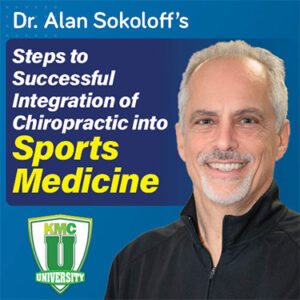I have a question about...




This Documentation Gap Analysis allows us to evaluate the significant components of your current Documentation program. It should take less than 5 minutes to complete.

Sometimes you need more than a self-service, on-demand program and need an expert to analyze your issues, train the corrections, and help you implement the changes, so they stick

This course explains the significant role chiropractic care can play in the sports industry and how a DC can succeed as a Sports Chiropractor. Start your steps to success here!

The most effective chiropractic OIG compliance programs are scaled according to the size of the practice!

